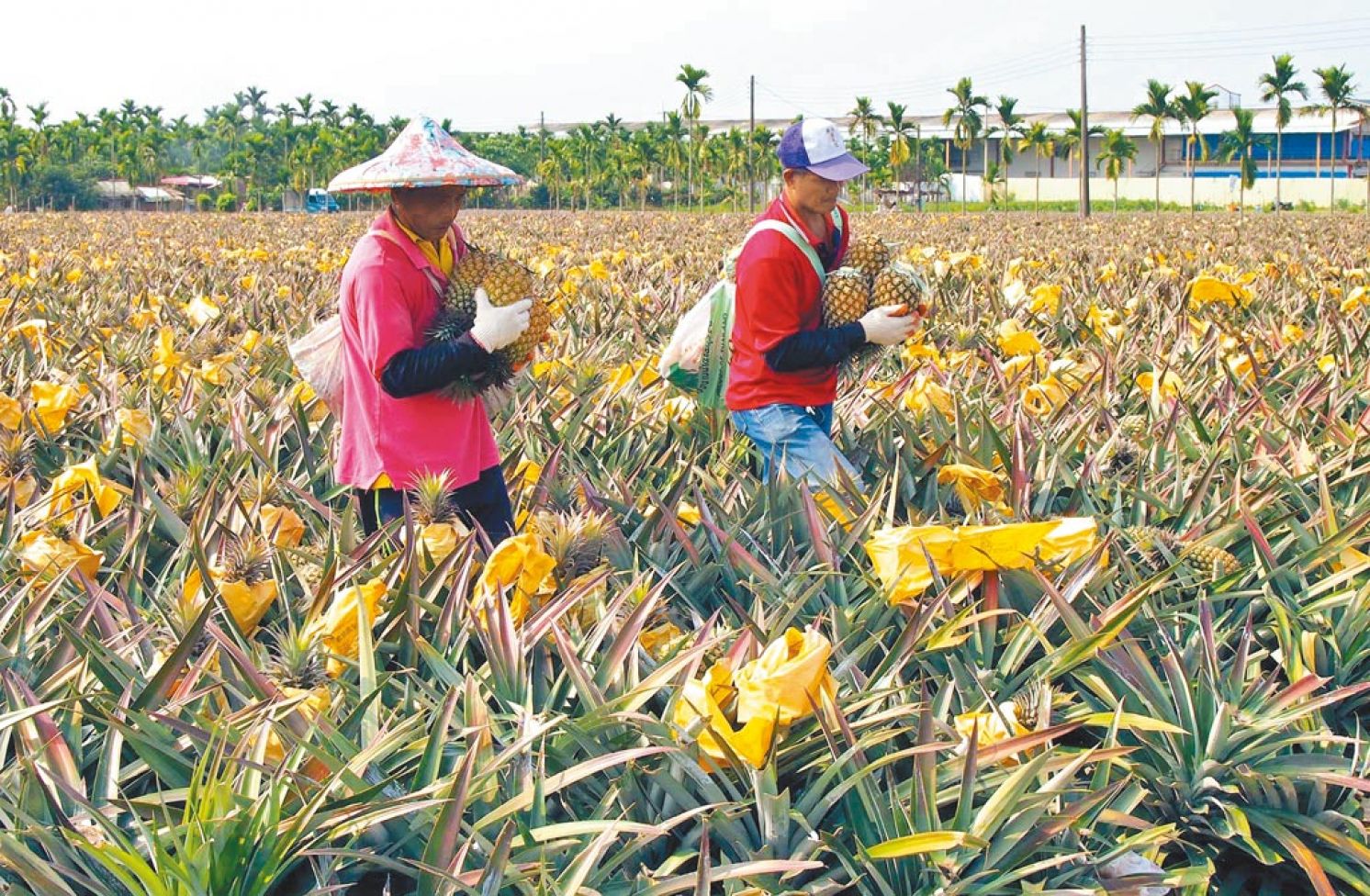
China Suspends Import of Taiwanese Pineapples, Council of Agriculture Plans NT$1 Billion Relief Spending
China Times, February 27, 2021
On grounds of quarantine, mainland Chinese authorities announced the suspension of Taiwanese pineapple imports from March 1. Given that more than 90 percent of Taiwan’s pineapple exports are to the mainland, this "pineapple ban” threatens to hit the Taiwanese pineapple market. The Council of Agriculture (COA) immediately launched a billion-dollar (about US$36 million) rescue plan in response. The message conveyed by the Office of the President was consistent, first calling the ban “a bad faith act,” then characterizing it as an “ambush” and “aberrant.” Unexpectedly, Premier Su Tseng-chang, who has generally been critical of China, appeared to have softened his tone. During interpellation at the Legislative Yuan, Su urged not to “elevate the issue to a political level” and consider it an action taken for quarantine purposes.
To address the difference in tone from the government, the Office of the President has held to its original messaging, which it asserts is the tone of the response. Premier Su’s answer in the Legislative Yuan was not a softer viewpoint but simply a response to the inquiry.
China’s General Administration of Customs issued the "Notice on Suspension of Imports of Taiwan Pineapples" on its official website on the 26th of February. The content shows that "Since 2020, mainland Chinese customs has repeatedly detected Planococcus minor and other pests such as beardsley and Melanaspis smilacis. In order to prevent the risk of plant epidemics and in accordance with relevant mainland laws, regulations and standards, it is hereby decided to suspend the import of pineapples from Taiwan to the mainland from March 1, 2021." It followed to state that “Customs will suspend the acceptance of pineapple declarations from Taiwan from March 1, 2021, and will promptly notify relevant enterprises in their jurisdiction of the above situation."
Spokesman Ma Xiaoguang of China’s Taiwan Affairs Office of the State Council responded in a written statement that once these pests are introduced, they pose a serious threat to agricultural production and ecological security. Preventing plant epidemic risks from the source is a normal biosafety precautionary measure, which is scientific and complies with relevant laws, regulations and standards.
Responding to the media, Spokesman Chang Chun-han of the Office of the President stated that since last year, Taiwan’s pineapples have been sold to China, with an inspection pass rate of 99.79 percent. In view of this, China is not behaving in good faith, and the president and vice president will take the lead in supporting Taiwanese farmers.
President Tsai Ing-wen condemned the short notice and the negative impact it has on trade. She also stated on Facebook with the topic "Support the Farmers and Eat Pineapples Together," that the decision from China came with no warning and does not help to normalize trade relations at all.
President Tsai stated that approximately 10 percent of domestically produced pineapples are exported across the Strait. In addition to continuing to fight for trade rights, the COA also expects to spend NT$1 billion (about US$36 million) to reduce the impact of this trade ban. Relevant mitigating measures will include expanding export markets, targeting a volume of 30,000 tons of pineapples, diversifying food processing to increase sales by an additional expected 20,000 tons, as well as implementing education programs for food farmer, and expanding the domestic market.
COA Minister Chen Chih-chung said that he hopes to maintain the price of pineapple at NT$21 (about US$0.75) per kilogram, and calls on all 23 million Taiwanese people to consume pineapples together so as to overcome this challenge.
On Facebook, Vice President William Lai also stated that while some might hesitate to eat pineapples for superstitious reasons, he hopes also that they might overcome this fear in support of pineapple farmers.
Opposition Kuomintang (KMT) Legislator Lin Wei-chou indicated that if the mainland’s policy is to impoverish Taiwan, are pineapples simply the beginning? In response, Premier Su stated the opinion that "It is a quarantine issue not to be elevated to a political level."
KMT Chairman Johnny Chiang recalled that during the administration of President Ma Ying-jeou from 2008 to 2016, the "Cross-Strait Agreement on Cooperation in Quarantine and Inspection of Agricultural Products" was signed. Later in the early months of 2016, when oranges from Taichung were banned due to certain diseases, the issue was resolved with proactive communication between the COA and the other side.
Chiang also called upon the new Minister Chiu Tai-san of the Mainland Affairs Council: "I look forward to resuming cross-strait exchanges." Now is the opportunity. The government should take the initiative and actively communicate with the other side to identify problem areas that can be resolved. The COA should take on this role in building trade partnerships and seeking resolution, rather than relying so easily assigning blame.
From: https://www.chinatimes.com/newspapers/20210227000349-260102